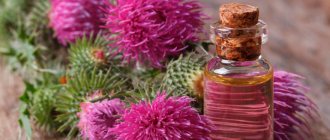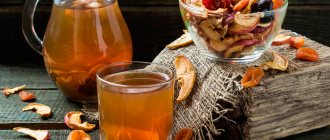Gastritis is one of the most common pathological processes affecting humanity around the globe. Manifests itself in inflammation of the mucous membrane of the stomach and duodenum. There is a violation of the secretion and motility of organs. With inflammation, mucosal hypertrophy or dystrophy is observed.
For gastritis, treatment is complex and regular. In combination with radical methods, the unconventional method of herbal medicine, or herbal treatment, is sometimes widely used.
It is possible to treat gastritis with herbs as an auxiliary method of conservative therapy. Herbs are especially effective in treating chronic processes. Each medicinal plant has a unique chemical composition and individual pharmacological effects. In order to correctly select the necessary formulations for treatment, it is necessary to thoroughly understand the medicinal properties of plants.
Herbal treatment has been used in folk medicine for centuries and has proven itself to be positive. However, you should not approach treatment thoughtlessly. You will need to consult a herbalist who will suggest herbs with healing and harmful effects on the body. Treatment with folk remedies should be carefully monitored, like traditional medications.
Medicinal herbs for high stomach acidity
Medicinal plants are used during exacerbation of the disease and to prevent gastrointestinal pathologies (for example, pancreatitis). Infusions and decoctions of which herbs are allowed to drink for hyperacid gastritis?
Traditional medicine allows the use of herbs for the following symptoms of pathology:
- burning sensation in the mouth;
- pain of varying degrees of intensity in the abdomen and stomach;
- disorder of the emptying process - diarrhea or constipation;
- severe sour heartburn;
- belching.
The list of useful herbs used to treat gastritis includes: yarrow, fireweed, mint, plantain, celandine, calendula, St. John's wort, wormwood and others.
For mild forms of the disease, it is recommended to use one-component decoctions and infusions. During the acute stage, it is better to use preparations, as they have a stronger therapeutic effect.
Aloe
The juice of the plant exhibits an astringent, regenerating and antibacterial effect on the gastrointestinal mucosa, while at the same time helping to improve metabolism and cleanse the intestines.
Aloe juice or pulp is used for treatment for at least three years. To prepare the plant for use, it is necessary to keep the cut leaves in the cold (preferably in the refrigerator).
Pure aloe juice can be used for therapy. It is recommended to consume it several teaspoons twice a day, half an hour before meals for several months.
Another recipe suggests mixing the juice of the plant (you can crush the pulp of the leaves) with natural honey in equal parts and let it brew - this helps well against flatulence and increased gas formation.
This therapy can be accompanied by taking freshly squeezed potato juice, which helps reduce acid synthesis in the stomach if consumed on an empty stomach. As an option, you can mix potato juice, honey, aloe juice in the following proportions: honey and aloe juice 2 tbsp. spoons, potato juice - 1 glass, and take this remedy on an empty stomach in the morning.
Contraindications to taking aloe:
- allergies to bee products and aloe;
- oncology;
- high blood pressure;
- exacerbation of liver and bladder diseases;
- pregnancy.
It is advisable to accompany aloe treatment with the use of probiotics.
Chamomile
An infusion from it is made in a simple way: 1 teaspoon of chamomile is infused in a glass of boiling water for 3 hours, consumed warm, a third of a glass at a time for one day. It is also useful to use multi-component infusions with chamomile. Pregnant women and people with allergies should use chamomile infusion with caution.
Calendula
Marigold, or calendula, is often used for gastritis with high acidity because of its antibacterial, astringent, emollient, anti-inflammatory, regenerating and antispasmodic properties.
The infusion is prepared as follows: take 1 teaspoon of calendula (its flowers) and brew with boiling water (1 glass). For the decoction, take marigolds (1 tablespoon), add 0.5 liters of water and boil for 5 minutes. These drugs are used up to three times a day to prevent various exacerbations.
Calendula is also used as part of preparations. For example, a herbal gastric mixture for gastritis using calendula includes herbs such as yarrow, chamomile, marshmallow root. Take an infusion of these herbs half an hour before meals for 3 weeks.
Wormwood for gastritis with high acidity
This herb promotes the healing of ulcers on the mucous membrane, relieves inflammation, and also normalizes stool for constipation (wormwood has a mild laxative effect).
To prepare “wormwood tea,” take 2 teaspoons of fresh or dry herbs and brew with 1 liter of boiling water, leave for half an hour. Drink tea before meals, a quarter or a third of a glass three times a day.
Contraindications: pregnancy and breastfeeding, acute period of the disease, ulcerative lesions of the gastrointestinal tract, thrombophlebitis, severe neuropsychiatric diseases and alcoholism.
St. John's wort
This plant has anti-inflammatory and antibacterial properties. To prepare the infusion 1 tbsp. pour boiling water (1 cup) over a spoonful of herbs and let it brew for 20 minutes. Use 1 tbsp. spoon after eating.
Contraindications: pregnancy, taking antidepressants, hypertension and illnesses accompanied by high fever.
Use drugs with this herb with caution when simultaneous use of cardiac, painkillers and antiplatelet drugs. Consumption of St. John's wort significantly increases the skin's sensitivity to the sun, which can cause sunburn.
Ivan tea for gastritis with high acidity
Ivan tea (or narrow-leaved fireweed), due to its high anti-inflammatory and antispasmodic properties, has a positive effect on the damaged organ.
To prepare a decoction of fireweed tea, its leaves (15 g) are brewed with 1 glass of hot water. The broth is kept for 20 minutes in a water bath. It is recommended to take 3 times a day, 1 tbsp. spoon.
A good effect is obtained by alternately taking an infusion of fireweed tea (4 days) and comfrey (2 days). To prepare comfrey infusion, use 2 tbsp. Pour boiling water (200 ml) over spoons of plant root.
The combination of fireweed with yarrow, chamomile, cudweed, calendula and other herbs has an anti-inflammatory and wound-healing effect.
An overdose of this herb can cause diarrhea and insomnia.
Celandine
The use of this plant, due to its toxicity, requires special attention - the dosage and method of application are strictly observed. To increase acidity, use a tincture of alcohol, and to decrease it, use a tincture of water.
An infusion to reduce acidity is prepared as follows: take celandine, chamomile, St. John's wort and yarrow in a ratio of 1:1:3:2, brew with boiling water and infuse for several hours, drink on an empty stomach in the morning. Single dosage – half a glass, duration of therapy – 3 weeks.
Contraindications include: bronchial asthma, epilepsy, pregnancy.
Peppermint
Mint for gastritis helps relieve heartburn. Usually this plant is used as part of a mixture: a mixture of St. John's wort (30 g), yarrow, mint (15 g each), a pinch of bean, pour boiling water (2 cups), keep warm for several hours and drink throughout the day.
Another infusion: take mint, yarrow and dill seeds 15 g each, add St. John's wort (3 g) and watch leaves (2 g). For one serving of infusion, pour 2 teaspoons of the mixture into 2 glasses of hot water and leave for several hours. Drink a quarter glass at a time up to six times a day.
Contraindication: hypotension. An overdose of herbs can cause exacerbation of existing diseases.
Melissa
Melissa is good for the stomach due to its anti-inflammatory and antibacterial properties.
For infusion, pour 10 g of herb with boiling water (0.5 l). Leave for 20-25 minutes. For a decoction - 1 teaspoon of lemon balm per 0.5 liters of water, boil the mixture for a quarter of an hour and leave for about 30 minutes. Drink the decoction only freshly prepared during the day.
To prepare medicinal tea, take 1 teaspoon of lemon balm, chamomile and mint, pour 1 glass of boiling water, leave for half an hour. Drink tea during or after meals; it is allowed to sweeten with honey.
Milk thistle
Milk thistle has a healing effect on the liver, but it is no less useful for gastrointestinal diseases, for example, gastritis and pancreatitis. This plant helps heal wounds on the mucous membrane of the organ, relieves inflammation and spasms, reduces the concentration of cholesterol in the blood and helps normalize the production of bile.
The leaves and fruits of milk thistle are considered beneficial. Decoctions are prepared from them, which are effective for hyperacid gastritis.
Milk thistle oil can also be included in the diet as a means of protecting the stomach lining. It is used for medicinal purposes for about 2 months, enhancing the effects of the medications used.
Motherwort
Fresh motherwort juice is considered an excellent antispasmodic, which reduces pain during attacks of acute gastritis. You should drink it half an hour before meals, 1 teaspoon three times a day, with water.
To improve digestion, normalize acid concentration and reduce heaviness in the stomach, it is recommended to use an infusion of motherwort, for the preparation of which 2 teaspoons of the herb are poured into 2 cups of boiling water and allowed to brew for about 6 hours. You should drink the infusion a quarter of a glass half an hour before meals 3-4 times a day.
Contraindications: hypotension, allergy to motherwort.
Golden mustache
Preparations made from golden mustache relieve pain in the stomach, inflammation and irritation of the mucous membrane, and stabilize acidity.
To make a decoction, a leaf of an adult plant is poured with 3.5 cups of boiling water and simmered over low heat for about a quarter of an hour. Drink the infusion 3 times a day, half an hour before meals, for 10 days.
The medicine can negatively affect the condition of the vocal cords.
Sage, nettle, yarrow
With increased acidity, sage can be used as part of herbal preparations, along with mint and dill seeds. The plant has anti-inflammatory, antiseptic, antimicrobial and astringent properties.
Nettle contains many vitamins and minerals; the herb helps reduce the concentration of acid in the stomach. Decoctions of both fresh and dry leaves are used.
Yarrow stimulates the flow of bile and stops bleeding, relieves spasms. But with high acidity, this herb can only be taken as part of a preparation; side effects include dizziness and various rashes.
Traditional medicine recipes
Herbal infusions for gastritis are recommended as a complex therapy for gastrointestinal pathologies. Use the following effective recipes:
- A mixture of St. John's wort, goldenfoil and mint in a ratio of 2:2:1, respectively. 1 tbsp. l. pour 200 ml of boiling water into the mixture and leave for 1 hour. 150 ml of medication is taken before meals three times a day.
- A mixture of mint leaves, chamomile flowers, dill seed. Herbs are taken in equal proportions (in general - 2 tbsp.) and pour 500 ml of water. The medicine is infused for 3 hours and taken 60 ml after meals.
- Tincture of yarrow, chamomile and St. John's wort. Medicines in a ratio of 3:1:3, respectively, are mixed in the amount of 1 tbsp. l. Brew with boiling water (200 ml). Take 1/3 cup before meals.
The tinctures are simmered over low heat or in a water bath for 10 to 15 minutes. Before using the medicine, warm it slightly. Simple recipes help regenerate damaged areas of the gastrointestinal mucosa. Due to this, the intensity of gastritis symptoms decreases.
Other herbs
Not only flowers, leaves, fruits, but also roots and bark can have a healing effect.
Cinnamon
Cinnamon has an antibacterial effect and perfectly relieves inflammation, helps improve food digestion, prevents bloating, colic, and eliminates diarrhea.
It is consumed as an infusion or by eating 2 tbsp daily. spoons of natural honey, sprinkled with ground cinnamon.
For infusion, you need to brew 1 teaspoon of cinnamon with boiling water (2 cups) and leave for an hour. It is recommended to drink the infusion 4 times a day before meals. Drink half a glass at a time.
Contraindications: pregnancy (there is a risk of miscarriage), internal bleeding, hypersensitivity to spices.
Oak bark
For erosive gastritis, it is good to use oak bark. A decoction of oak bark relieves inflammation and swelling of the mucous membrane of the digestive organ, protects it from irritation and accelerates recovery processes.
For the decoction, add a handful of pre-crushed oak bark to 1 liter of water and boil for 10 minutes. Drink half a glass of the decoction half an hour before meals. Treatment may be accompanied by nausea.
Burdock root
For a decoction, take 1 teaspoon of the plant per 1 (for decoction) or 2 (for making an infusion) glasses of water. You should take the medications at least three times a day for a month.
Burdock
You can protect the mucous membrane from the influence of hydrochloric acid and help stabilize the stomach with the help of plant juice. The course of therapy is 1.5 months, during which half a tbsp is taken three times a day. spoons of plant juice. This plant has virtually no contraindications.
Liquorice root
The drug from licorice root has the ability to normalize stomach acidity. To prepare it, you need to pour 20 g of the root, previously crushed, with boiling water (1 glass) and keep it in a water bath for 20 minutes, leave for several hours, add 1 glass of boiled water to the decoction. You should drink 2 tbsp before meals. spoons. The duration of treatment is a month.
The juice is consumed by adding it (a few drops) to warm water (half a glass), in three warm doses throughout the day.
Licorice is contraindicated in pregnant women and patients with high blood pressure.
Medicinal properties of St. John's wort
St. John's wort is a herbaceous, flowering shrub 30–60 cm high, well known as a medicinal plant used in folk and traditional medicine. In addition, St. John's wort is used as a spice and flavoring in the food industry (fish and meat products) and in the alcoholic beverage industry.
The plant has a pleasant aroma and a bitter, astringent taste. It is toxic, so you should be careful in its use and adhere to the exact dosage when consuming it. Its use as animal feed is prohibited. In official medicine, St. John's wort is well known for its antibiotic properties. Based on it, drugs are produced for the treatment of skin problems (ulcers, burns, wounds), otitis media, phlegmon, etc. (“Novoimanin”, “St. John’s wort oil”, etc.).
In dentistry, St. John's wort oil and its alcohol tinctures are used to treat inflammatory processes in the oral cavity (stomatitis, gingivitis) and strengthen the gums.
St. John's wort is a herbaceous flowering shrub 30–60 cm high, well known as a medicinal plant used in folk and traditional medicine.
The plant has a very beneficial effect on the nervous system, raising the tone of the body, relieving depression, normalizing sleep, therefore it is part of herbal antidepressants (Gelarium Hypericum, Deprivit, Deprim Forte, etc.).
Traditional medicine has been using the healing properties of St. John's wort since the times of Ancient Greece and Rome. The plant has long gained fame as a cure for ninety-nine diseases. In addition to its disinfecting and regenerating effect, St. John's wort is also known as an anti-inflammatory, mild choleretic, antispasmodic, astringent, hemostatic, diuretic, and anthelmintic agent.
A decoction of St. John's wort in the form of tea is used for various colds, to treat coughs and sore throats. St. John's wort copes no less successfully with viruses and infections, helping to get rid of sore throats, acute respiratory viral infections, and influenza. An alcoholic tincture of St. John's wort roots serves as a healing drug in the treatment of bone tuberculosis and dysentery. The plant is also widely used in cosmetology as a wound healing and disinfectant.
Medicinal properties of St. John's wort for stomach treatment
St. John's wort has actually been used for a long time to treat stomach diseases. This herb has anti-inflammatory, disinfectant and astringent effects. Effective for gastritis, ulcers. This collection helps with stomach pain, heartburn and bloating. Take 1 part each of St. John's wort, dried cucumber and centaury, chop and mix. Pour 3 tablespoons of the mixture into a liter of boiling water. Let it brew, strain and take 100 ml 5 times a day.
And there is not only a healthy, but also a tasty medicine based on St. John's wort: stomach tea. Take St. John's wort, mint, lemon balm and yarrow in equal proportions. Pour 2 teaspoons of the mixture into a glass of boiling water, let it brew and drink instead of tea. This tasty and aromatic drink helps with gastritis, ulcers and stomach pain.
Gastric collection for gastritis with high acidity
Ready-made stomach preparations can be found in pharmacies, but you can prepare them yourself.
For gastritis with increased secretion, a collection that consists of equal parts of calendula, chamomile, fireweed, horsetail, immortelle, yarrow, lemon balm and nettle leaves, to which are added calamus root, corn silk, and plantain leaves, is considered effective.
For acute gastritis, a mixture of 4 components is used: chamomile, string, calendula, yarrow, which relieve muscle spasms, heartburn and nausea. To prepare the infusion 2 tbsp. Pour boiling water (0.5 l) over spoons of the mixture and leave for 20 minutes. You should drink 150 ml of the product throughout the day.
Soda solution, mineral water
These products should not be used daily, only in case of severe heartburn. We recommend natural mineral water like Borjomi 2.4 or Essentuki (1 glass); soda solution, for which a small spoon of baking soda is added to 200 ml of clean water.
Both liquids have an alkaline pH and neutralize hydrochloric acid that enters the esophagus from the stomach.
Herbs that are prohibited
For hyperacid gastritis, the following are prohibited:
- rose hip. Rose hips have an irritating effect on the gastrointestinal mucosa;
- ginger. It provokes increased secretion and pain in the stomach;
- tsikoii. It causes increased synthesis of gastric juice, which is good with low acidity, but harmful with high acidity;
- sea buckthorn - irritates the gastric mucosa and increases acidity. The following can be beneficial for this type of gastritis: sea buckthorn oil or an infusion of its berries, which have anti-inflammatory and wound-healing properties;
- plantain. A decoction or juice from it can cause an exacerbation of the disease, especially if erosions or ulcers are present on the mucous membrane of the organ;
- calamus rhizome. Medicines made from calamus have a choleretic effect and increase the acidity of the stomach.
What you need to know about herbal medicine for gastritis
Before you begin treating gastritis with herbs at home, you need to decide on the form of the disease. It can occur with or without a change in the acidity level of gastric juice.
Medicinal herbs for gastritis of the stomach, accompanied by a decrease in acidity, improve the production of gastric juice and help normalize digestion.
Herbs for gastritis of the stomach with high acidity neutralize the effect of hydrochloric acid in the stomach and protect its mucous membrane. Therefore, before deciding what herbs to drink for gastritis of the stomach, you should consult a doctor, undergo diagnostics and determine the specific form of the disease.
Side effects
Side effects from using herbs include:
- increased blood pressure;
- swelling of various parts of the body;
- constriction of blood vessels (when using preparations from yarrow);
- exacerbation of varicose veins;
- the occurrence of hallucinations (when using wormwood tinctures);
- convulsions.
To prevent such phenomena, it is important to correctly select the dosage of herbs. Excess active ingredients can lead to intoxication of the body and other unpleasant symptoms.
List of references: https://www.obozrevatel.com/health/health/lechim-gastrit-narodnyimi-metodami.htm https://liktravy.ua/ru/useful/articles/likuvannia-hastrytu-travamy komikz.ru/news /society/10714 https://aif.ru/health/life/1477307 https://nastroenie.tv/episode/110075 https://sobesednik.ru/zdorove/lechim-gastrit-narodnymi-sredstvami https://www .bibliotekar.ru/med/med3-1.htm https://artlib.osu.ru/Docs/piter/bookchap/978546901571.html https://www.kp.ru/guide/kislotnost-zheludka.html https: //azbyka.ru/zdorovie/travnik-terapiya-zabolevanij-zheludka Home medical encyclopedia. Symptoms and treatment of the most common diseases. T. N. Albova, 2010. Notes from the author of the article, based on personal experience. This material is purely subjective and is not a guide to action. Only a qualified specialist can determine an accurate diagnosis and prescribe treatment.
Aloe
Aloe has a very gentle and gentle effect on the gastrointestinal tract. The juice from the leaves of the plant helps relieve the feeling of heaviness and improves the functioning of all gastrointestinal organs. For treatment, healers recommend using leaves that are two or more years old. During this time, a sufficient concentration of useful substances accumulates in them.
To enhance the effect and taste, aloe juice is used together with natural honey. It is important to remember that aloe cannot be combined with all medications, so you should not take its juice at the same time as drug therapy.











